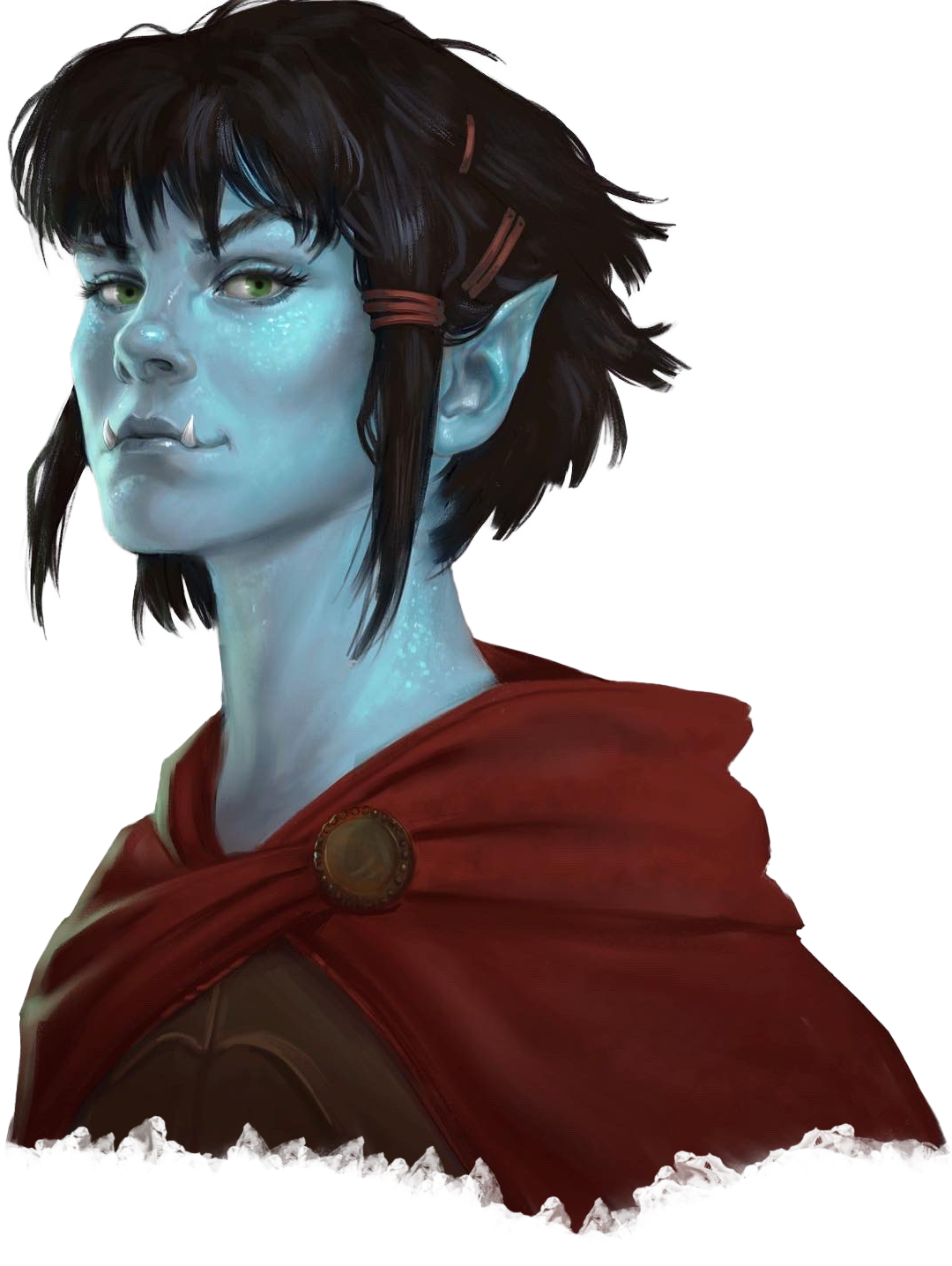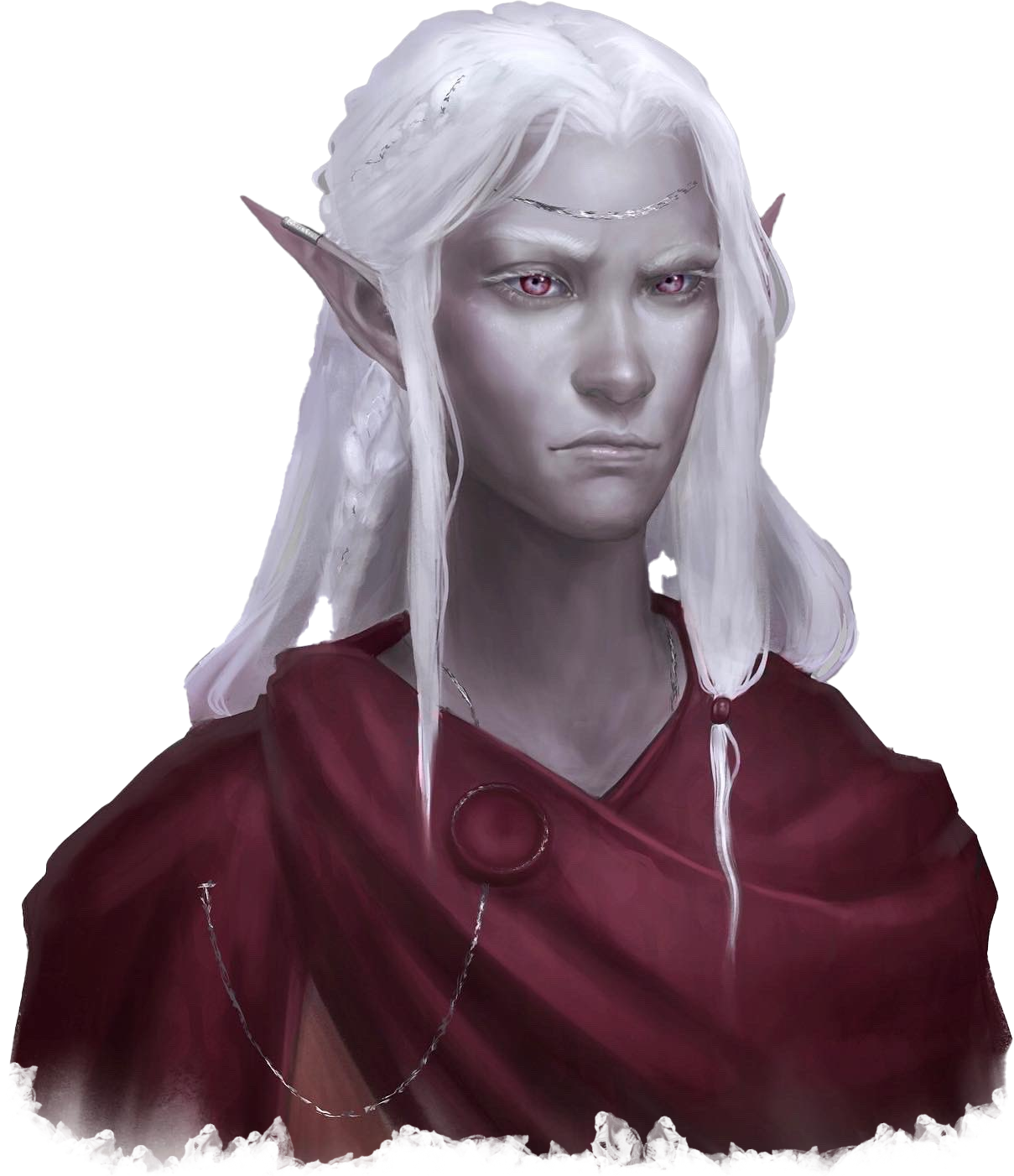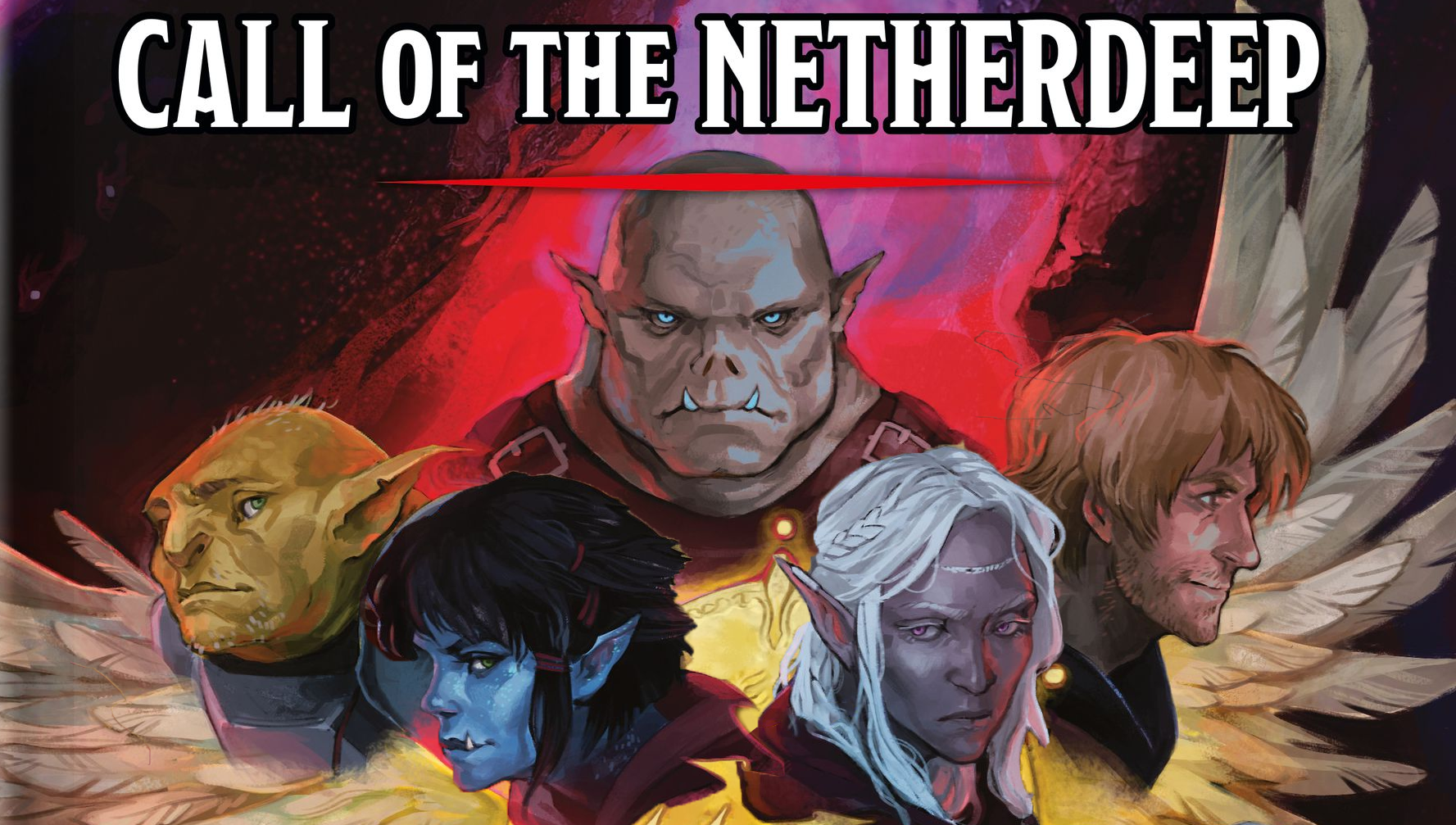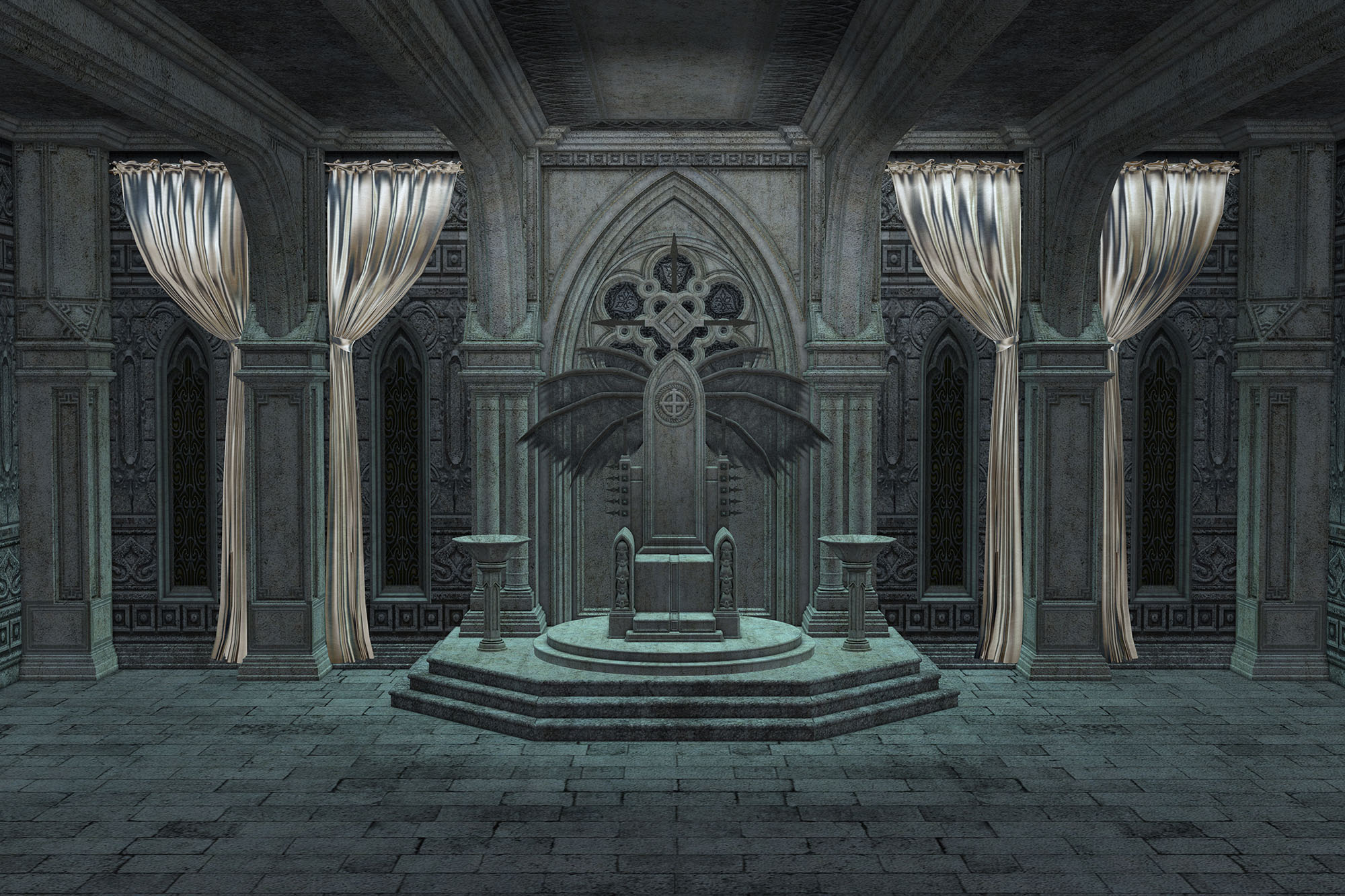SPOILERS FOR CALL OF THE NETHERDEEP
Call of the Netherdeep is a campaign set in Exandria, the world of Critical Role created by Matthew Mercer.
I have virtually no knowledge of Critical Role.
I haven’t read the comic books or the tie-in novels. I haven’t watched the animated series. Of the original show itself, I’ve watched a number of clips, a couple of episodes, and Matthew Colville’s phenomenal recap of the Season 1 finale. (Which still brings tears to my eyes.)
I haven’t even had the time to dive into the Explorer’s Guide to Wildemount or the Tal’dorei Campaign Setting.
Nonetheless, Call of the Netherdeep is something that I’ve wanted Wizards of the Coast to do for awhile now: Release a sourcebook for a campaign world (e.g., Explorer’s Guide to Wildemount) and then support it with a full campaign book. (Ravnica, Theros, etc. They’d all be more useful with an accompanying campaign book.)
In any case, this review tackles Call of the Netherdeep on its own terms and only its own terms.
OVERVIEW
Call of the Netherdeep starts the PCs at 3rd level (and eventually wraps up as they hit 12th level). Things kick off in the coastal village of Jigow, where the PCs have arrived just in time to enjoy the Festival of Merit. While enjoying the festival games, they fall into rivalry with another group of adventurers who are also competing. As the festival draws to a close, both groups race through the Emerald Grotto, an underwater obstacle course, in order to claim a magical spear that has been stuck into the side of a shark.
When the shark is killed, its death throes knock open an underwater temple that has been lost since the time of the Calamity (a semi-legendary apocalypse). Inside the temple, either the PCs or their rivals claim the Jewel of Three Prayers, an artifact which once belonged to Alyxion the Apotheon.
The PCs are then sent to Bazzoxan, a small city that was built around Betrayers’ Rise, a huge temple complex dedicated to the Betrayer Gods and squatting atop a vast dungeon. The Rise had been abandoned since the Calamity, but would-be explorers delved too deep and awoke Abyssal portals. Bazzoxan is now a military compound — the front line in a war against demons and abominations streaming up from below.
While in Bazzoxan, the PCs will run into scholars belonging to three different factions from the distant city of Ank’Harel who have come to Bazzoxan because [SPOILERS FOR THE NEXT CHAPTER, TELL THE PLAYERS NOTHING]. Heading into the depths of Betrayers’ Rise themselves, the PCs discover another temple that adds extra magical mojo to the Jewel of Three Prayers.
Following one or more of the scholars back to Ank’Harel, the PCs join their faction. After completing a series of faction missions, the PCs are eventually granted access to the ruins of Cael Morrow, a city which was destroyed during the Calamity and now lies sunken below an underground sea beneath Ank’Harel.
Within Cael Morrow, the PCs eventually discover (and enter) the transdimensional prison in which Alyxion the Apotheon has been held since his “death” during the Calamity. Within this prison, the PCs explore manifestations of Alyxion’s memories, learning the true story of what happen to him. In short:
- He was born under the red moon of Ruidus, which is considered bad luck.
- He entire life was, in fact, an endless string of bad luck.
- During the Calamity he prayed to the gods three times for assistance to save those in peril, and three times the gods answered his prayer (creating the Jewel of Three Prayers).
- When Gruumsh attempted to destroy all life on the continent of Marquet with a single blow of his spear, the Apotheon countered the blow with his semi-divine power. Cael Morrow was destroyed, but the rest of the continent was spared.
- The fury of Gruumsh’s blow, combined with Alyxion’s parry and the destruction of Cael Morrow, ripped open an interdimensional space into which the strange energies of Ruidus flowed. This was the Netherdeep, and it became Alyxion’s prison.
Recently the Netherdeep has been leaking, its strange energies escaping in the form of ruidium – a reddish crystal that is both immensely powerful and also corrupting. The PCs have been encountering ruidium since the beginning of the campaign, and it turns out the factions in Ank’Harel want access to its source so that they can either exploit it or destroy it (depending on their individual agendas).
At the campaign’s finale, the PCs confront the Alyxion in three different forms, ultimately deciding whether to kill the Apotheon, redeem him, or unleash him. A decision which will have consequences for all of Exandria.
THE RIVALS
So if we strip away the Critical Role tie-in, what’s the log line for Call of the Netherdeep? What’s the pitch? Why would you pick this campaign over any other campaign?
Well, as you can see from the summary, this is an epic adventure: From humble beginnings, the PCs journey across vast distances to save the world.
There are, of course, any number of such campaigns, but Call of the Netherdeep is a well-formed one. The transition from the gothic depths of Betrayers’ Rise directly to the sun-drenched streets of Ank’Harel, for example, is beautifully vivid, and speaks to the varied and richly realized milestones in the PCs’ journey. The underwater themes of the adventure — in the Emerald Grotto, Cael Morrow, and the Netherdeep — also give it a distinctive flair.
But Call of the Netherdeep’s truly unique calling card is the Rivals: Five NPCs who form their own adventuring party and dog the PCs’ heels throughout the campaign.
So my elevator pitch for Call of the Netherdeep would be:
It’s an epic adventure, like the Lord of the Rings. But you have a group of rivals who are competing with you for glory.
The best thing about the Rivals are the rivals themselves: Ayo Jabe, Dermot Wurder, Galsariad Ardyth, Irvan Wastewalker, and Maggie Keeneyes. Each is given a great backstory and strong personality, which are then expertly presented in three or four paragraph briefings. Each is also given an individual goal to pursue.
 The result is very easy to pick up and play, with lots of varied opportunities for cool interactions. In fact, if you paired these up with character sheets, you’d have a great party of pregenerated PCs, which speaks to just how solid these characters are.
The result is very easy to pick up and play, with lots of varied opportunities for cool interactions. In fact, if you paired these up with character sheets, you’d have a great party of pregenerated PCs, which speaks to just how solid these characters are.
The Rivals are then given a really great introduction, being individually introduced during the festival games in Jigow, so that the players have a chance to form one-on-one relationships with them (instead of the Rivals just becoming an undifferentiated mob).
Unfortunately, in practice, the Rivals are then marred (possibly crippled) by the adventure’s execution.
The core problem is that the campaign is railroaded. Or, more accurately, that it’s railroaded badly. We’ll discuss this in more detail momentarily, but as far as the Rivals are concerned, this railroading hamstrings their ability to actually have a rivalry. A rivalry generally requires you and your rival to be in competition to achieve a common goal and/or to demonstrate your superiority in a field of endeavor.
But like most bad railroads, Call of the Netherdeep (a) scripts predetermined outcomes and (b) struggles with presenting a clear, actionable agenda.
So the rivalry largely works at the beginning of the campaign — when the PCs and the Rivals are both clearly aimed at winning the Emerald Grotto race — but then rapidly falls apart. You can’t race to achieve a goal before your rivals do when the campaign has failed to define what your goal is. Nor can you meaningfully race someone if they’re scripted to show up in the next cutscene.
The other major problem is that the relationship between the Rivals and the PCs is defined entirely by attitude: The Rivals are Friendly, Indifferent, or Hostile.
This gauge is basically designed to produce fail-states in the rivalry.
If the Rivals are Hostile, for example, they are constantly framed up to either:
- try to steal the magical artifact from the PCs; and/or
- attack the PCs and try to kill them.
In my experience, there are two Unforgivable Sins that an NPC can commit:
- They can kill a PC’s pet.
- They can steal the PC’s shit.
Anything else (even assassination attempts) can probably be forgiven, but if an NPC does either of these things? The PCs will never forgive them and will almost certainly kill them on sight.
So if the Rivals go Hostile, the overwhelmingly likely outcome is that the PCs will kill them very early in the campaign. And then, obviously, no more rivalry.
On the other hand, if the Rivals go Friendly, the logical outcome is that they’ll offer to work with the PCs. As Call of the Netherdeep says:
If [Ayo Jabe] gets the sense that the characters have stumbled onto something big, her eyes grow wide. She decides that she and her group want a piece of the action and proposes that they travel with the characters, saying that there’s safety in numbers. A character makes a successful DC 13 Wisdom (Insight) check realizes that she isn’t hiding anything and wants nothing more than to be part of a grand adventure.
It seems rather likely that the PCs will agree with Ayo Jabe’s logic… and now you have five GMPCs to deal with.
This, honestly, feels like a huge headache to me. Even running one NPC companion can create issues with spotlight time and bias (perceived and actual), as I discuss in more detail here. But the  really big problem is combat balance: Running 5th Edition D&D for a group of ten PCs is infamously difficult because the action economy means results in any encounter with a small number of opponents (one or two or three) just getting absolutely curb-stomped.
really big problem is combat balance: Running 5th Edition D&D for a group of ten PCs is infamously difficult because the action economy means results in any encounter with a small number of opponents (one or two or three) just getting absolutely curb-stomped.
Crucially, Call of the Netherdeep is not designed for this: The encounters are neither CR-balanced for ten party members, nor are they designed for large groups. Betrayers’ Rise, for example, is made up entirely of encounters with 1-3 opponents, and will be absolutely steamrolled if the PCs and Rivals have teamed up.
The campaign clearly knows it has a problem here, so — even though it explicitly mentions that Ayo Jabe will offer to work with the PCs — it just silently assumes that the PCs won’t do that.
Problem solved, right?
No.
Rather the opposite, actually, because the book, as part of its bad railroading, just blithely includes multiple pre-scripted scenes which assume that the Rivals are definitely not working with the PCs.
This is actually something that Call of the Netherdeep does quite often, and it’s honestly kind of bizarre: An NPC will approach the PCs, offer to work with them… and then the book just assumes that they don’t do that.
Maybe the authors have just literally never had players willing to work with NPCs before?
Regardless, the result is badly broken.
To sum up: The Rivals are incredibly cool. But if you run them the way the book tells you to, then somewhere around Chapter 2 they will end up either:
- dead;
- no longer rivals of the PCs; and/or
- breaking the campaign.
I think we can mark this down as “rough around the edges.”


















